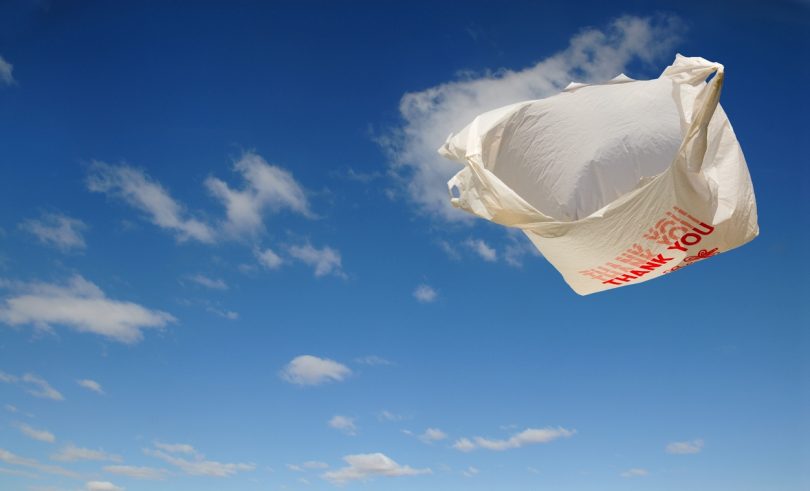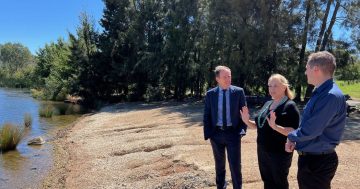
‘A Pla-sticky situation’: legislation under review after growing concerns of plastic bag proliferation in the ACT.
Simply increasing the minimum allowable thickness of plastic bags would not be a worthwhile result of a review of plastic bags legislation, according to the ACT Conservation Council.
Concerns at the continuing proliferation of plastic bags in the ACT has prompted the Minister for Climate Change and Sustainability, Shane Rattenbury, to direct the ACT Commissioner for Sustainability and the Environment, Kate Auty, to review the 2010 legislation that banned lightweight plastic bags of less than 35 microns thick.
He wants the Commissioner to consider options that include increasing the minimum thickness of bags and requiring the use of biodegradable, compostable bags.
ACT Conservation Council Executive Director Larry O’Loughlin said the review was welcome but it might not be of much use if the review just finds that the thickness of plastic bags should be changed.
“We actually need to look at genuine change, that people remember to take receptacles with them,” he said.
Mr O’Loughlin said an outright ban might be the way to go but it would be good if we had an Australia-wide approach.
“It’s a matter really of what people need to understand to do and that they are better prepared and have more options of genuine reusable bags so when they come to the end of the life cycle they’re useful for something else and they’re not causing damage to the environment,” he said.
While plastic bags were only a small part of the overall waste problem, it was important they were dealt with because they did gradually work their way into the waterways, then into the ocean and marine environment, he said.
Mr Rattenbury said in his letter to Professor Auty that plastic bag manufacturers had been quick to ensure they were able to offer bags that were just over the 35-micron minimum limit to retailers.
“As a consequence, I understand that many retailers and customers have not changed their behaviour around the use of plastic bags, and perversely may instead be using thicker plastic bags for single uses,” he said.
“I have considered a number of options, such as whether it would be better to again increase the minimum thickness of plastic shopping bags to encourage numerous reuses of the bags, or whether it could instead be better to require the use of biodegradable, compostable bags. Another concern I have is the use of plastic bags that degrade into micro plastic pieces, thus creating further environmental issues.”
Professor Auty will investigate whether the legislation is effective and recommend any improvements that could benefit the environment.
Mr Rattenbury said he was worried about how much retailers were using slightly thicker bags and one option would be to increase the thickness to 75 microns, which Queensland was considering.
He also was interested to know what new technologies were available.
“We may be able to refine the scheme to ensure we further reduce the use of plastics, for example by only permitting single-use bags that are biodegradeable,” he said
Mr O’Loughlin said there were alternatives and people do use the canvas, jute or reusable ‘green’ bags available from supermarkets.
He said about replacing plastic with thicker plastic: “you might get an extra 50 lives out of a thick bag but you’re still going to end up with something in the ocean”.
There also could be better recycling options, as dedicated bins at shopping centres were hard to find.
“It would be good if all the people who give away the plastic bags would take them back to be recycled not just dumped into landfill here,” he said.
Professor Auty is expected to hand down her report by June.
What are your thoughts on this issue? Is increasing the thickness of the plastic the answer to curbing plastic shopping bag numbers? Let us know by commenting below.















